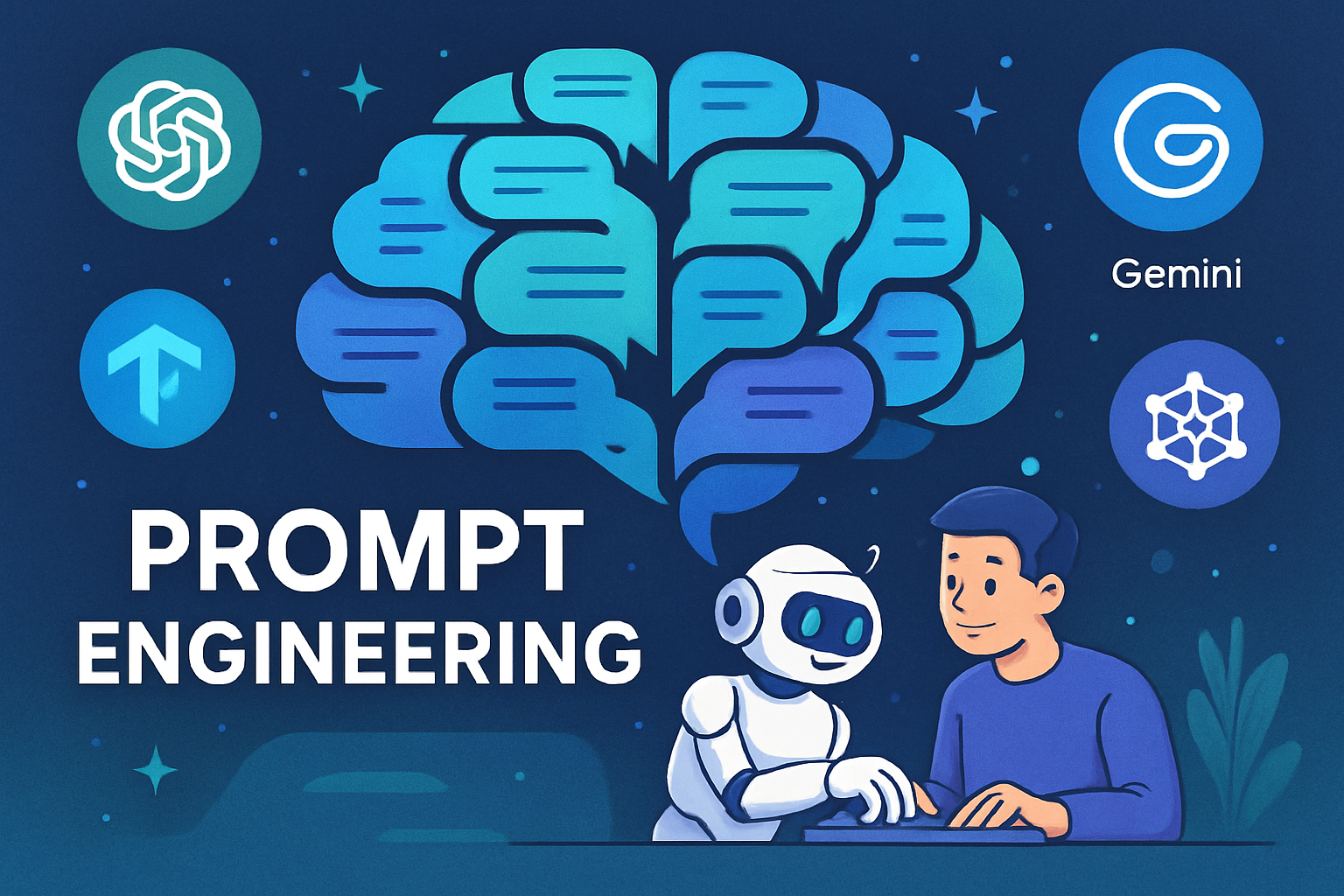Free Prompt Engineering: Your Beginner's AI Learning Guide
Unlock the power of AI by learning prompt engineering for free! This guide provides resources and tips for beginners to master the art of crafting effective prompts and automate AI workflows.

Unlock AI Power: Learn Prompt Engineering for Free
Want to wield the power of AI but feel intimidated? Prompt engineering is your superpower! It’s the art of crafting effective instructions (prompts) for AI models like ChatGPT, Claude, and Gemini to get the results you need. And the best part? You can learn it for free!
Why Learn Prompt Engineering?
Think of AI models as incredibly talented, but slightly clueless, assistants. They need clear, specific instructions to perform tasks effectively. Prompt engineering bridges the gap between your ideas and AI's capabilities.
- Better Results: Well-crafted prompts yield more accurate, relevant, and creative outputs.
- Increased Efficiency: Save time and effort by getting it right the first time.
- Unleash Creativity: Explore the full potential of AI for writing, art, coding, and more.
- Future-Proof Skills: As AI becomes more integrated, prompt engineering will be a highly valued skill.
Free Resources to Master Prompt Engineering
The good news is that there are tons of fantastic resources available at no cost to help you master prompt engineering. Let's explore some of the best!
1. AI Model Documentation and Guides
The source is always a good place to start! Most AI platforms offer free documentation and tutorials. For example:
- OpenAI (ChatGPT): Explore the OpenAI API documentation and browse example prompts.
- Google AI (Gemini): Check out Google AI's documentation for best practices and prompt examples.
- Anthropic (Claude): Review Anthropic's documentation on prompting Claude effectively.
2. Online Courses and Tutorials (Free Tiers)
Many online learning platforms offer free introductory courses on AI and prompt engineering. Look for courses on:
- Coursera: Search for "prompt engineering" and filter for free courses or audit options.
- edX: Similar to Coursera, find introductory AI courses with a focus on prompt design.
- YouTube: A treasure trove of free tutorials! Search for specific AI models (e.g., "ChatGPT prompt engineering tutorial") and beginner-friendly guides.
- Fast.ai: Offers practical deep learning courses, including sections on text generation and prompting.
3. Community Forums and Online Groups
Learning alongside others is invaluable. Join online communities to ask questions, share tips, and learn from experienced prompt engineers.
- Reddit: Subreddits like r/ChatGPT, r/artificialintelligence, and r/PromptEngineering are great for discussions and learning.
- Discord Servers: Many AI communities have active Discord servers where you can chat with fellow learners and experts.
4. Prompt Libraries and Examples
Why reinvent the wheel? Explore prompt libraries to get inspiration and adapt existing prompts to your needs.
- Learn Prompting: A community-driven site with a large collection of prompts for various AI models.
- ChatGPT Prompt Examples: Search online for collections of effective ChatGPT prompts for different use cases.
5. Experimentation and Practice
The most effective way to learn prompt engineering is by doing! Experiment with different prompts, analyze the results, and refine your techniques. Use free AI model access (limited use) to test things out.
Advanced Prompt Engineering Techniques (Simplified)
As you progress, explore these techniques to level up your prompt engineering skills:
- Zero-Shot Prompting: Ask the AI to perform a task without providing any examples.
- Few-Shot Prompting: Provide a few examples to guide the AI's response.
- Chain-of-Thought Prompting: Encourage the AI to explain its reasoning step-by-step.
- Role Prompting: Instruct the AI to act as a specific persona or expert.
Automate Your AI Workflow: Integration is Key
Once you're comfortable with prompt engineering, consider automating your AI workflows to save even more time and effort. That's where tools like Make.com come in handy.
Make.com is a powerful integration platform that allows you to connect different apps and services, including AI models. Imagine automatically generating marketing copy with ChatGPT and then sending it to your email list – all without writing a single line of code! With Make.com, you can create custom workflows that streamline your AI-powered tasks.
For example, you could create a Make.com scenario that does the following:
- Receives a customer review.
- Sends the review to ChatGPT for sentiment analysis.
- Based on the sentiment (positive, negative, neutral), takes different actions:
- If positive, posts the review to social media.
- If negative, sends an alert to the customer support team.
These types of workflows will become increasingly critical as we integrate AI into our daily activities, and the best part? Make.com has a generous free tier for beginners!
Start Your Prompt Engineering Journey Today!
Don't be intimidated by AI. Prompt engineering is a learnable skill, and the resources are readily available. Start exploring, experimenting, and automating, and you'll be amazed at what you can achieve!
Frequently Asked Questions
What is prompt engineering?
Prompt engineering is the process of designing and refining text prompts that instruct AI models like ChatGPT to generate desired outputs.
How can a beginner use prompt engineering for writing better content?
A beginner can use prompt engineering by providing clear instructions, specifying the desired tone and style, and including keywords or context to guide the AI model.
Is prompt engineering difficult to learn for someone new to AI?
No, prompt engineering is relatively easy to learn for beginners. With free online resources and practice, anyone can quickly grasp the basics and start creating effective prompts.
What are some examples of free resources for learning prompt engineering?
Some free resources include AI model documentation, online courses (free tiers), community forums, and prompt libraries.
Affiliate Disclosure: Some of the links on this site are affiliate links. I earn a small commission if you make a purchase through them—at no extra cost to you. Thank you for your support!